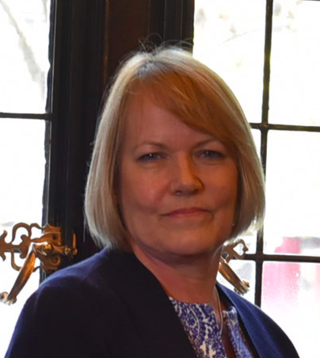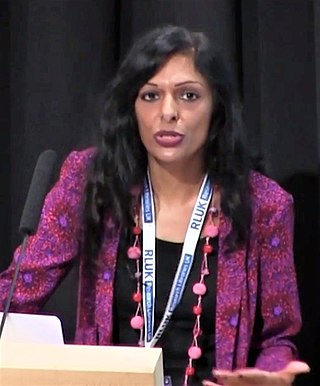Related Research Articles

The University of Southampton is a public research university in Southampton, England. Southampton is a founding member of the Russell Group of research-intensive universities in the United Kingdom, and ranked in the top 100 universities in the world.

Solent University is a public university based in Southampton, United Kingdom. It has approximately 10,500 students (2019/20). Its main campus is located on East Park Terrace near the city centre and the maritime hub of Southampton.

The Russell Group is a self-selected association of twenty-four public research universities in the United Kingdom. The group is headquartered in Cambridge and was established in 1994 to represent its members' interests, principally to government and Parliament. It was incorporated in 2007. Its members are often perceived as being the UK's best universities, but this has been disputed.
The Chartered Institute of Ergonomics and Human Factors is a United Kingdom-based professional society for ergonomists, human factors specialists, and those involved in user-centred design.



University of Southampton School of Medicine is a medical school in England. It is part of the University of Southampton with a site at Southampton General Hospital, offering 5 Medicine courses, all leading to the award of Bachelor of Medicine, Bachelor of Surgery (BMBS). Graduates of the BM5/BM6/BM(EU) programme are also awarded an integrated BMedSc (Hons) degree. Prior to 2013, the Bachelor of Medicine (BM) degree was awarded.

Southampton is a port city in Hampshire, England. It is located approximately 80 miles (130 km) south-west of London, 20 miles (32 km) west of Portsmouth, and 20 miles (32 km) south-east of Salisbury. Southampton had a population of 253,651 at the 2011 census, making it one of the most populous cities in southern England. Southampton forms part of the larger South Hampshire conurbation which includes the city of Portsmouth and the boroughs of Havant, Eastleigh, Fareham, and Gosport.

Dame Jane Elizabeth Francis, is the Director of the British Antarctic Survey. She previously worked as Professor of Palaeoclimatology at the University of Leeds where she also was Dean of the Faculty of Environment. In 2002 she was the fourth woman to receive the Polar Medal for outstanding contribution to British polar research. She is currently the Chancellor of the University of Leeds.
Peter Kyberd is a biomedical engineer specialising in rehabilitation. He is currently head of the School of the Built and Natural Environment at University of Derby. He serves on the editorial board of the Journal of Prosthetics and Orthotics, and the executive board of the national members society of the International Society of Prosthetics and Orthotics (ISPO). His main research activity has been the practical application of technology to rehabilitation and engineering in Orthopaedics. He has chaired both international upper limb research conferences; MEC and TIPS.
A Bachelor of Medical Sciences (BMedSci, BMedSc, BSc(Med), BMSc) is an undergraduate academic degree involving study of a variety of disciplines related to human health leading to an in depth understanding of human biology and associated research skills such as study design, statistics and laboratory techniques. Such disciplines include biochemistry, cell biology, physiology, pharmacology or psychosocial aspects of health. It is an equivalent level qualification to the more commonly awarded Bachelor of Science (BSc). Graduates may enter a diverse range of roles including post-graduate study, higher education, the biotechnology industry, the pharmaceutical industry, consultancy roles, scientific communication, education or unrelated disciplines which make use of the broad range of transferable skills gained through this degree.
Neil Martin is an English Formula One strategist who was the former head of strategy at Scuderia Ferrari.

Boaty McBoatface is the British lead boat in a fleet of three robotic lithium battery–powered autonomous underwater vehicles (AUVs) of the Autosub Long Range (ALR) class. Launched in 2017 and carried on board the polar scientific research vessel RRS Sir David Attenborough, she is a focal point of the Polar Explorer Programme of the UK Government.
The Royal Society University Research Fellowship (URF) is a research fellowship awarded to outstanding early career scientists in the United Kingdom who are judged by the Royal Society to have the potential to become leaders in their field. The research fellowship funds all areas of research in natural science including life sciences, physical sciences and engineering, but excluding clinical medicine.

Jeremy John Baumberg, is a British physicist who is Professor of Nanoscience in the Cavendish Laboratory at the University of Cambridge, a Fellow of Jesus College, Cambridge and Director of the NanoPhotonics Centre.

David John Richardson is a Professor and Deputy Director of the Optoelectronics Research Centre at the University of Southampton.
Sarah Elizabeth Lamb is the Pro-Vice-Chancellor and Executive Dean of the Faculty of Health and Life Sciences at the University of Exeter, and the Mireille Gillings Professor for Health Innovation. She is also an Honorary Departmental Professor at the Nuffield Department of Medicine, University of Oxford and the Director of the Oxford Clinical Trials Research Unit.
Elisabeth Marjolijn (Elselijn) Kingma is a Dutch philosopher. She is a professor at King's College London where she holds the Peter Sowerby Chair in Philosophy and Medicine.

Sally Brailsford is a British professor of management science within Southampton Business School at the University of Southampton. Her research focuses on operational research and healthcare modelling to evaluate treatments and screening programmes, and to improve health service delivery.

Kalwant Bhopal is Professor of Education and Social Justice and Director of the Centre for Research in Race & Education at the University of Birmingham. Her work explores the achievements and experiences of minority ethnic groups in education with a focus on how processes of racism, exclusion and marginalisation operate in predominantly White spaces.
References
- ↑ "Research groups - University of Southampton". www.southampton.ac.uk.
- ↑ "Leading a productive research group - University of Oxford" . www.ox.ac.uk.